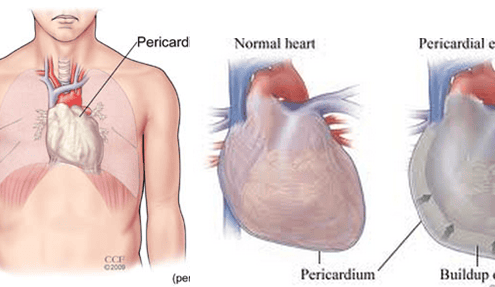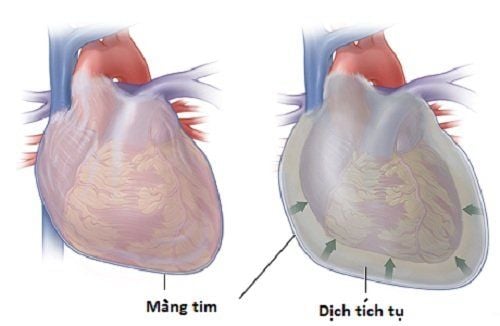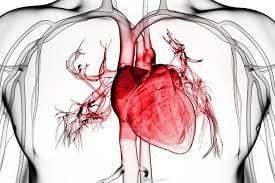This is an automatically translated article.
Rheumatic heart disease (acute rheumatic fever) is a dangerous disease that affects the heart and is life-threatening. Therefore, recognizing symptoms of rheumatic heart disease and early diagnosis to have the right treatment direction is very necessary.
1. Identification signs
Clinical symptoms of rheumatic heart disease usually appear after at least 2-4 weeks or longer from the time the patient has strep throat infection. These signs can occur independently or together.
1.1 In the joints Arthritis is the most typical and noticeable form, and includes swelling, redness, heat, pain, and difficulty in movement. Inflammation occurs in many joints, also known as polyarthritis, and inflammation of the large joints.
It should be noted that this form of arthritis has a rotative nature, meaning that when one joint shows signs of relief, inflammation reappears in another joint. The duration of each joint inflammation usually lasts from 3 days to 7 days, never longer than 1 month.
1.2 In the heart This symptom of rheumatic heart disease is atypical, including the following:
Myocarditis Is the type of damage that any case of rheumatic heart disease encounters. Patients with myocarditis have signs of chest pain in the anterior region of the heart, tachycardia and arrhythmia, accompanied by fatigue, pale skin. If myocarditis is severe, it will cause acute heart failure, the patient has difficulty breathing, cyanosis, edema, less urination, even death.
Endocarditis (endocarditis) If myocarditis is detected late and not treated promptly, after a few weeks often leads to endocarditis. This is the cause of valvular sequelae, most commonly mitral regurgitation, mitral stenosis and aortic regurgitation.
Pericarditis This condition is less common. To diagnose, the doctor will rely on the patient's symptoms such as chest pain, shortness of breath; intensive examination to detect blood pressure disorders, small tachycardia, faint heart sounds or pericardial rubbing; X-ray showed an enlarged heart, weak heartbeat.
Total heart inflammation When the heart is damaged, inflammation in all 3 parts, the myocardium, pericardium and pericardium, is called total heart inflammation. This condition is very serious and is common in children under 7 years of age. If not treated quickly and aggressively, the progression of the disease has the potential to lead to severe heart failure and death.

1.3 In other parts In the skin Meynet particles appear. The telltale signs of Meynet seeds are hard, the size of a corn or pea, painless to the touch and often located around joints or along the spine. automatically disappears leaving no trace after up to 2 months. In addition, Lendoch-Leyner erythema and Besnier erythema are other forms of skin lesions.
Neurological Sydenham chorea are neurological disorders that lead to involuntary movement due to brain damage. Specific manifestations are movement, rapid movement without purpose, increasing when the patient is emotional and disappearing when they sleep. This nerve damage can occur in the whole body, half of the body, or in the extremities.
Other organs The disease also affects other organs, such as: glomerulonephritis, pneumonia, acute hepatitis, blood vessel damage,...
2. Diagnostic criteria
People who often have rheumatic heart disease are children and young people. Because the disease occurs in multiple systems, damage to the heart is just one of a number of different symptoms.
Key criteria include:
Arthritis Heart inflammation Subcutaneous nodules Erythema ring Dance, chorea.

In addition, there are additional criteria including:
Fever ≥ 38 degrees C Prolonged PR wave ECG History of streptococcus arthritis Elevated erythrocyte sedimentation rate, inflammatory response CRP (C- reactin protein) and white blood cells increased. To diagnose rheumatic heart disease, it is necessary to find at least 1 symptom in the major criteria and 2 manifestations in the minor criteria, or 2 major criteria and the test results show that the patient has an infection. inter-bridge.
The rate of cases of rheumatic heart disease or acute rheumatic heart disease can be greatly reduced thanks to the use of antibiotics in treatment and prevention. According to medical experts, killing strep throat causing sore throat is not only a priority when treating, but also a way to prevent rheumatic heart disease from arising. In addition, patients also need to strictly follow the doctor's instructions to prevent recurrence of the disease.
Please dial HOTLINE for more information or register for an appointment HERE. Download MyVinmec app to make appointments faster and to manage your bookings easily.












